
Fun Summer Activities for the Elderly with Caregiver Support
June 28th, 2025Caregiver Agency, Caregiver Service, In home assistance for the elderly, in home care assistance, Polish Care Services, Senior Care Services, Uncategorized,
Summer is a vibrant season filled with opportunities for the elderly to stay active, engaged, and socially connected. At Polish Care Services, a leading Caregiver Agency in Connecticut and Florida, we understand the importance of keeping seniors involved in meaningful activities to enhance their well-being. Our Senior Care Services and In home assistance for the elderly ensure that seniors can enjoy summer safely and joyfully with the support of our dedicated Polish caregivers. From outdoor adventures to creative indoor pursuits, here are fun summer activities tailored for the elderly, supported by our Companion and Homemaker Services to make every moment memorable.
Why Summer Activities Matter for Seniors
Summer offers warm weather, longer days, and a chance for seniors to enjoy new experiences. Engaging in activities promotes physical health, mental stimulation, and emotional well-being, which are critical for aging gracefully. Our Caregiver Agency specializes in providing In home assistance for the elderly, helping seniors participate in activities that suit their abilities and interests. Whether it’s a stroll in a Connecticut park or a craft session in a Florida home, our Polish caregivers offer compassionate support to ensure safety and enjoyment. Studies show that active seniors experience improved mood and reduced health risks, making summer activities a vital part of Senior Care Services.
Outdoor Activities for Seniors
Outdoor activities allow seniors to soak up vitamin D and enjoy nature, with Companion and Homemaker Services ensuring they’re safe and comfortable. Here are some ideas:
Garden Strolls and Picnics
Taking a leisurely walk through local gardens, such as Elizabeth Park in Hartford, CT, or Marie Selby Botanical Gardens in Sarasota, FL, is a perfect summer activity. Our Polish caregivers provide In home assistance for the elderly by assisting with mobility, carrying picnic supplies, or setting up a shaded spot for a meal. Picnics with family or friends foster social connections, and our Caregiver Agency ensures seniors are supported throughout the outing.
Beach or Park Visits
In Florida, seniors can enjoy gentle walks along Siesta Beach or Venice Beach, while Connecticut offers serene parks like Bushnell Park. Our Senior Care Services include transportation and companionship, allowing seniors to enjoy the scenery safely. Companion and Homemaker Services ensure hydration, sun protection, and comfort, making these outings enjoyable and stress-free.
Outdoor Yoga or Tai Chi
Gentle exercises like yoga or tai chi in local parks promote flexibility and balance. Many CT and FL communities offer senior-friendly classes, and our Polish caregivers can accompany clients, providing support during sessions. These activities enhance physical health, and our Caregiver Agency tailors assistance to each senior’s needs.
Indoor Activities for Hot Summer Days
When temperatures soar, indoor activities keep seniors engaged without the risk of heat exhaustion. Our In home assistance for the elderly ensures these activities are safe and fun.
Arts and Crafts
Crafting sessions, such as painting or scrapbooking, stimulate creativity and provide a sense of accomplishment. Our Companion and Homemaker Services include setting up supplies, guiding projects, or even joining in to create a bonding experience. Seniors in Sarasota can draw inspiration from local art at the Ringling Museum, while those in Hartford can explore themes from the Wadsworth Atheneum, with Polish caregivers offering support.
Board Games and Puzzles
Board games like Scrabble or puzzles like jigsaw sets are excellent for mental stimulation. Our Senior Care Services include organizing game nights at home, with Polish caregivers facilitating group activities or playing one-on-one. These activities foster cognitive health and social interaction, ideal for seniors in CT and FL.
Virtual Tours and Learning
Seniors can explore virtual museum tours or take online classes on topics like history or cooking. Our Caregiver Agency provides In home assistance for the elderly by setting up devices, ensuring accessibility, and offering companionship during these activities. Virtual tours of places like Florida’s Kennedy Space Center or Connecticut’s Mystic Seaport keep seniors engaged indoors.
Community-Based Summer Activities
Community events in CT and FL offer seniors opportunities to socialize and stay active, with our Companion and Homemaker Services providing essential support.
Farmers’ Markets
Visiting farmers’ markets, such as the Sarasota Farmers Market or Hartford’s Regional Market, allows seniors to enjoy fresh produce and community vibes. Our Polish caregivers assist with walking, carrying bags, or selecting items, ensuring a safe and enjoyable experience. These outings align with our Senior Care Services, promoting healthy eating and social engagement.
Senior Center Events
Many CT and FL senior centers host summer events like bingo, dance classes, or barbecues. Our Caregiver Agency provides transportation and companionship, enabling seniors to participate fully. For example, seniors in Farmington, CT, or Venice, FL, can enjoy local events with the support of In home assistance for the elderly.
Library Programs
Libraries in Farmington, CT, or Southgate, FL, offer summer reading programs or lectures for seniors. Our Polish caregivers accompany clients, help with book selections, or assist with note-taking during talks, enhancing intellectual stimulation through Companion and Homemaker Services.
Benefits of Caregiver Support for Summer Activities
Engaging in summer activities with caregiver support offers numerous benefits for seniors:
– Safety and Comfort: Our Polish caregivers ensure seniors are safe during outdoor activities, managing mobility aids or monitoring for heat-related issues, as part of In home assistance for the elderly.
– Social Connection: Our Companion and Homemaker Services foster social bonds by accompanying seniors to events or facilitating family interactions, reducing loneliness.
– Personalized Support: As a Caregiver Agency, we tailor activities to each senior’s abilities, ensuring they enjoy summer without strain.
– Mental and Physical Health: Activities supported by Senior Care Services improve cognitive function, physical fitness, and emotional well-being, as evidenced by studies showing active seniors have lower rates of depression.
– Cultural Sensitivity: Our multilingual Polish caregivers provide culturally sensitive care, making activities enjoyable for diverse clients in CT and FL.
Client testimonials highlight our impact: “Polish Care Services made summer special for my mom with their Senior Care Services. Their Polish caregivers helped her enjoy park outings safely” (Mary K., Sarasota, FL).
Serving Connecticut and Florida
Polish Care Services proudly serves seniors across Connecticut and Florida. In CT, we cover towns like Hartford, New Haven, Farmington, and West Hartford, offering In home assistance for the elderly for summer activities. In FL, we serve Sarasota, Southgate, Longboat Key, Venice, and Fruitville, ensuring seniors enjoy local events like beach walks or farmers’ markets. Whether near Hartford’s Elizabeth Park or Sarasota’s Siesta Beach, our Caregiver Agency provides Companion and Homemaker Services to make summer memorable. Our Polish caregivers understand local communities, tailoring activities to enhance seniors’ quality of life.
How to Get Started with Caregiver Support
Start enjoying summer activities with Polish Care Services by contacting us for a free consultation. Our team will assess your needs, match you with skilled Polish caregivers, and create a personalized Senior Care Services plan for summer fun. Visit our Contact Us page or call us to schedule an appointment. Let us help your loved one thrive this summer with In home assistance for the elderly in CT and FL.
Frequently Asked Questions
How can a Caregiver Agency help with summer activities?
Our Caregiver Agency provides In home assistance for the elderly, ensuring seniors can safely participate in activities like picnics or crafts with Polish caregivers.
What summer activities are safe for seniors?
Safe activities include garden strolls, indoor crafts, and community events, supported by our Companion and Homemaker Services for comfort and safety.
Do you offer companionship for seniors in Florida?
Yes, our Senior Care Services include Companion and Homemaker Services for social activities in Sarasota, Venice, and other FL areas.
Can caregivers assist with outdoor activities in Connecticut?
Our Polish caregivers provide In home assistance for the elderly for outdoor activities like park visits in Hartford or New Haven, ensuring safety.
How do I schedule caregiver support for summer?
Contact us via our Contact Us page for a free consultation to plan Senior Care Services for summer activities.
Are your caregivers trained for senior activities?
Yes, our Polish caregivers can provide mobility assistance, safety, and dementia non medical assistance, ensuring enjoyable summer experiences.
Do you serve all of Connecticut and Florida?
We cover key areas like Hartford, New Haven, Sarasota, and Venice, providing Companion and Homemaker Services across CT and FL.
Conclusion
Polish Care Services is your trusted Caregiver Agency for fun summer activities for the elderly in Connecticut and Florida. Our Senior Care Services and In home assistance for the elderly ensure seniors enjoy garden strolls, crafts, and community events safely. With Companion and Homemaker Services and dedicated Polish caregivers, we enhance seniors’ quality of life through engaging summer experiences. Contact us today via our Contact Us page to plan a vibrant summer for your loved one with Senior Care Services in CT and FL.
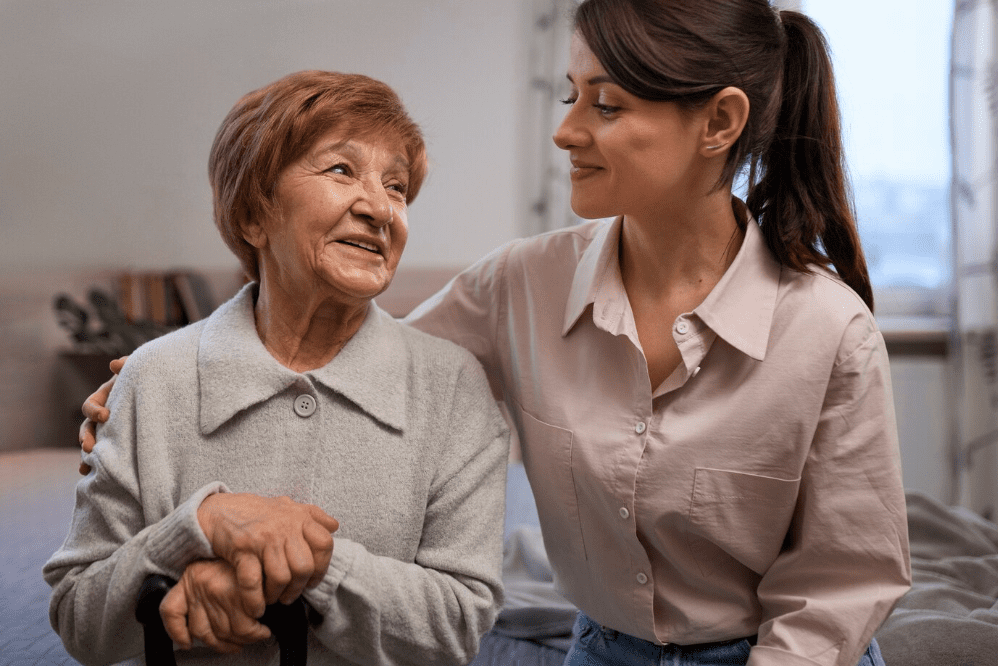
Balancing Elderly Care, Work, and Self: Practical Caregiver Tips
October 31st, 2023Caregiver Service, Companion Caregiver, Elderly Care, in home care assistance, Polish Care Services,
Managing the multiple roles that come with being a caregiver who provide elderly care for loved ones, an employee, and an individual with personal needs can feel like walking on a tightrope. The challenge intensifies when trying to excel in each area without compromising the others.
Along with ensuring the welfare of the person you’re caring for, you must foster your own mental and physical well-being. This article, courtesy of Polish Care Services, shares actionable tips for any caregivers navigating the intricacies of work, caregiving, and personal life.
Prioritizing Essential Tasks
When juggling roles as varied as caregiving, working, and personal development, prioritization becomes a crucial skill. Focus on tasks that are time-sensitive and essential to the well-being of your elderly loved one.
Prioritizing allows you to allocate your energy and time more efficiently, ensuring that you’re not overwhelmed by less important tasks. You can act more decisively and effectively when you know what needs immediate attention.
Acquiring an Online Degree
The juggling act between work and caregiving is complicated. Still, it doesn’t mean your career should come to a halt. Virtual learning has made it feasible for caregivers to consider furthering their education.
Enrolling in top-rated masters in nursing programs online, for instance, can be an excellent way to climb the career ladder while still attending to your caregiving duties. The flexible hours and online modules make it a perfect fit for your stringent schedule.
Implementing a Structured Routine
Life becomes a lot less chaotic with a well-thought-out schedule. Assigning specific time slots for different responsibilities (e.g., caregiving, professional work, personal activities, etc.) will help you maintain a routine. Consistency in following the schedule imparts a sense of discipline and ensures not a single aspect of your life is neglected.
Digitized All Important Documents
The modern world offers plenty of digital solutions that can make a caregiver’s life easier. One such example is using a mobile scanning app to store and share digital documents like legal paperwork. Having all your essential documents in a digital format makes them easily accessible and shareable, which can be a real time-saver in emergency situations.
Focusing on Personal Health
Caregiving is a demanding job, both physically and emotionally. But no caregiver who provides elderly care or other task can offer the best care if they’re not in their best shape. Maintaining a healthy lifestyle is non-negotiable. From getting enough sleep to eating balanced meals and exercising regularly, personal health should never take a back seat.
Utilizing Organizational Tools
Keep your tasks and responsibilities neatly organized by employing the use of digital tools or traditional planners. An organized approach simplifies the coordination of caregiving duties, work commitments, and personal activities. Calendars or task management tools can be excellent allies in staying organized, enabling you to fulfill your roles more efficiently and with less stress.
Reaching Out for Support
It’s okay to ask for help. Elderly care caregiving is often emotionally and physically draining, and doing it all on your own is impractical and detrimental to your well-being.
Reach out to friends, family, or community support groups to share responsibilities or emotional burdens. No one is an island, and a little help can go a long way in reducing your stress levels.
You might also benefit from hiring people to help with your caregiving duties. Polish Care Services offers a range of cleaning and caregiving services, all of which we carry out with compassion and professionalism.
Retaining a Sense of Individuality
Don’t forget to enjoy life amid the hustle and bustle. Your hobbies and personal interests are not frivolous but essential for your mental well-being. They offer an avenue to detach, relax, and rejuvenate. Setting aside time for activities that bring you joy can remarkably improve your mood and efficiency, making you a happier and thus better caregiver.
Summary
Striving to excel as a caregiver, a working professional, and an individual with a personal life may seem like a Herculean task, but it’s certainly possible. You can successfully balance these multifaceted roles by prioritizing tasks, enhancing your skills through education, adhering to a structured schedule, digitizing documents, staying organized, and focusing on self-care. Remember that a balanced life is not a myth but a realistic goal; the tips above can be your roadmap to achieving it.
Credit: June Duncan
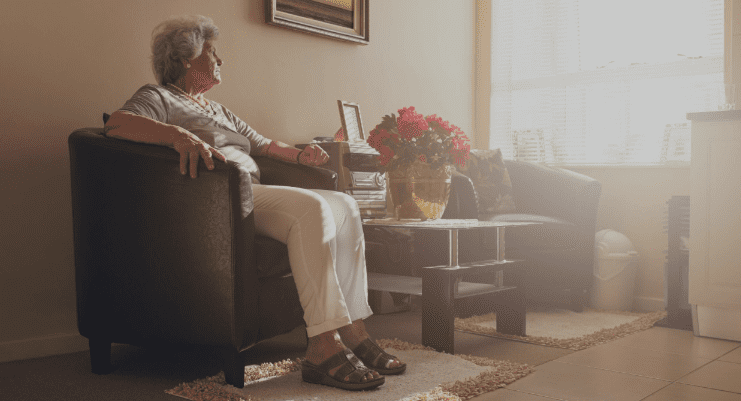
58 Ways To Keep Seniors Safe In Their Home
October 16th, 2023aging in place, Caregiver Service, Companion Caregiver, In Home Care, in home care assistance, Senior Care Services,
Many seniors prefer to live independently in their own homes for the comfort, satisfaction of familiarity and self-reliance; however, this can also pose some risks and challenges. To ensure their safety and comfort in their home, here are 58 ways that can help seniors stay safe in their homes:
– Install smoke detectors and carbon monoxide detectors on every floor and test them regularly.
– Keep a fire extinguisher in the kitchen and other areas where fires may occur.
– Avoid using candles, matches, or lighters near flammable materials or curtains.
– Replace frayed or damaged cords and plugs of electrical appliances and devices.
– Use surge protectors and avoid overloading outlets or extension cords.
– Turn off appliances and devices when not in use or before going to bed.
– Keep a flashlight and extra batteries in an accessible location in case of a power outage.
– Install grab bars and non-slip mats in the bathroom, especially near the bathtub, shower, and toilet.
– Use a shower chair or bench if standing for long periods is difficult or risky.
– Adjust the water heater temperature to prevent scalding or burns.
– Keep medications in their original containers and store them in a cool, dry, and secure place.
– Dispose of expired or unused medications properly and safely.
– Follow the instructions and dosages of your medications and supplements carefully and consult your doctor or pharmacist if you have any questions or concerns.
– Use a pill organizer or dispenser to help you remember when to take your medications and supplements.
– Keep a list of your medications, allergies, medical conditions, and emergency contacts in your wallet or purse and on your refrigerator door.
– Wear a medical alert bracelet or necklace if you have a chronic or serious condition that may require immediate attention.
– Keep a first aid kit stocked with bandages, antiseptics, pain relievers, and other essentials in an accessible location.
– Seek medical attention promptly if you experience any signs or symptoms of a stroke, heart attack, infection, or other serious condition.
– Schedule regular check-ups and screenings with your doctor and dentist and follow their recommendations for preventive care and treatment.
– Get vaccinated against seasonal flu, pneumonia, shingles, COVID-19, and other diseases that may affect seniors more severely.
– Eat a balanced and nutritious diet that meets your dietary needs and preferences.
– Drink plenty of water and fluids to stay hydrated and avoid dehydration.
– Limit your intake of alcohol, caffeine, salt, sugar, and processed foods that may affect your blood pressure, blood sugar, cholesterol, or weight.
– Take vitamin D and calcium supplements to support your bone health and prevent osteoporosis.
– Exercise regularly to maintain your strength, flexibility, balance, and endurance. Choose activities that you enjoy and are suitable for your fitness level and abilities.
– Consult your doctor before starting a new exercise program or changing your existing one.
– Warm up before exercising and cool down after exercising to prevent injuries or soreness.
– Wear appropriate clothing, footwear, and equipment when exercising.
– Avoid exercising outdoors when the weather is too hot, cold, humid, or polluted.
– Stay indoors or seek shade when the UV index is high to prevent sunburns or skin cancer.
– Wear sunscreen, sunglasses, hat, and protective clothing when exposed to the sun.
– Avoid smoking or exposure to secondhand smoke that may increase your risk of lung cancer, COPD, heart disease, stroke, and other conditions.
– Manage your stress levels by practicing relaxation techniques such as deep breathing, meditation, yoga, tai chi, or massage.
– Seek professional help if you experience any signs or symptoms of depression, anxiety, dementia, or other mental health issues.
– Stay socially connected with your family, friends, neighbors, community groups, clubs, or organizations that share your interests and hobbies.
– Use technology such as phone calls, video calls, emails, text messages, social media, or online platforms to communicate with your loved ones and access information and services.
– Learn new skills or pursue new hobbies that challenge your mind and keep you engaged and stimulated.
– Play games or do puzzles that improve your memory, concentration, logic, or creativity.
– Read books or magazines that expand your knowledge or entertain you.
– Watch movies or shows that make you laugh or inspire you.
– Listen to music or podcasts that soothe you or motivate you.
– Keep a journal or diary that helps you express your thoughts and feelings.
– Volunteer for a cause or organization that aligns with your values and passions.
– Adopt a pet or plant that provides you with companionship and responsibility.
– Review your finances and budget and plan for your future needs and goals.
– Seek advice from a financial planner, lawyer, or accountant if you need help with managing your money, assets, or taxes.
– Update your will and estate plan and inform your family or beneficiaries of your wishes.
– Review your insurance policies and coverage and make any changes or adjustments as needed.
– Declutter your home and belongings and donate, sell, or discard anything that you no longer need or use.
– Organize your home and belongings and label, store, or display them in a way that makes them easy to find and access.
– Make your home more accessible and comfortable by installing ramps, rails, lifts, or other devices that help you move around or reach things.
– Make your home more energy-efficient and eco-friendly by using LED bulbs, smart thermostats, solar panels, or other products that reduce your electricity consumption or carbon footprint.
– Make your home more secure and safe by installing locks, alarms, cameras, or other systems that deter intruders or alert you of any threats.
– Hire a professional or ask a friend or family member to help you with any home repairs, maintenance, or improvement projects that you cannot do yourself.
– Consider hiring a caregiver, housekeeper, gardener, chef, homemaker or companion or other service provider to help you with any personal care, household chores, or other tasks that you need assistance with.
– Consider using a delivery service, online shopping, or curbside pickup to order groceries, meals, medications, or other items that you need or want.
– Consider using public transportation, ride-sharing, or taxi services to get around if you do not drive or have a car.
– Consider joining a senior center, assisted living facility, or retirement community if you need more social interaction, support, or care.
This is an extensive list to ensure the safety of seniors in their home, some of which may have already been utilized however there are additions help to enhance the safety of our loved ones. Please call Polish Care Services for in home care assistance for seniors.
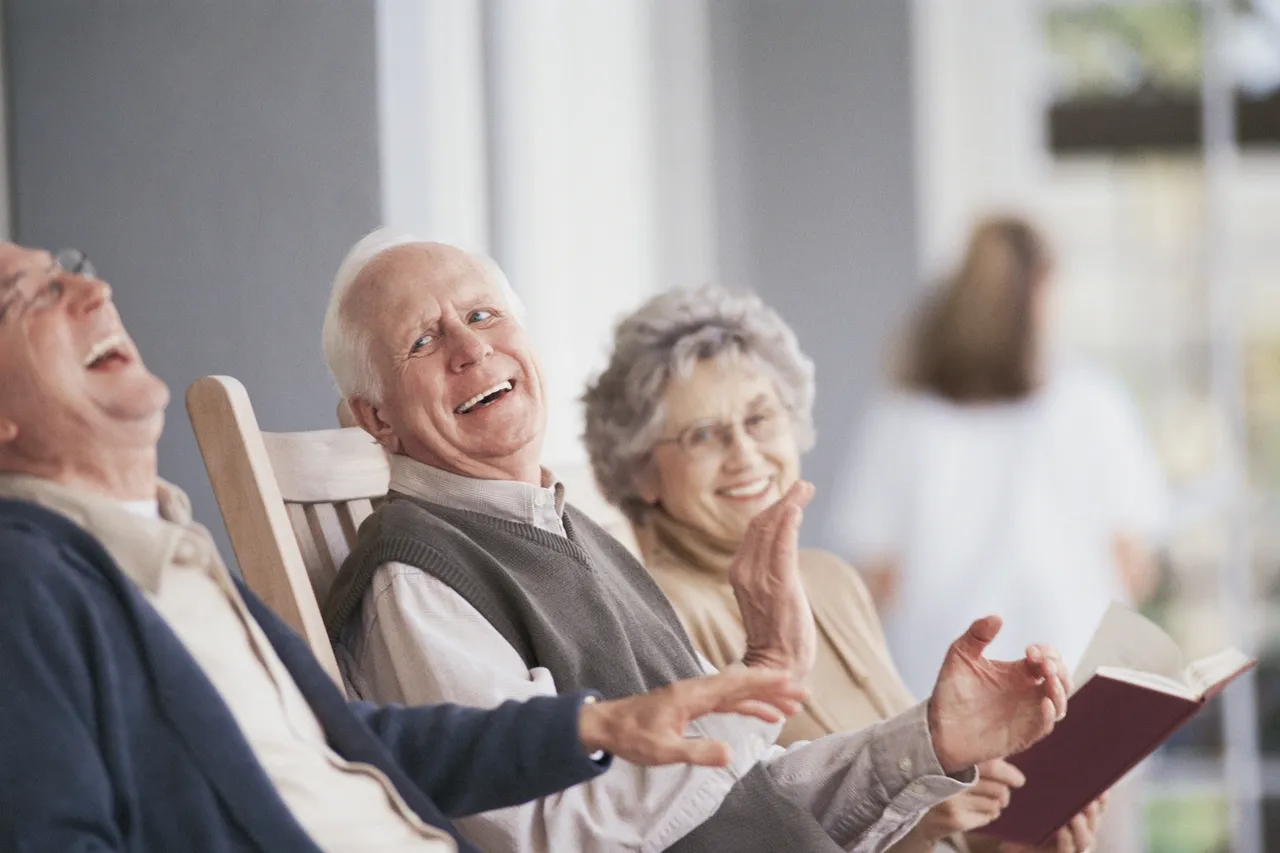
Caring for Seniors: Recognize Memorable Moments with Seniors
February 15th, 2021Alzheimer's Care, Caregiver Employment, Caregiver job, Disability Care, Elderly Care, In Home Care, in home care assistance,
Memory care is a specialized type of care designed to meet the needs of seniors who have Alzheimer’s or dementia and who want to stay at home. This is particularly true for seniors in the early stages of dementia or Alzheimer’s. But providing such care for a loved one can take a toll on a caregiver which is why in-home memory care services are helpful.
Benefits of Memory Care
Long term care at home designed for patients with dementia helps keep them from feeling disoriented compared to moving to a specialized care facility. Agencies that offer specialized care for seniors with these conditions typically have specialized training for their caregivers. This added benefit gives families who may already feel overwhelmed and stressed added security and peace of mind.
Caregivers can help with things like helping seniors look at photos or other objects to help support and engage their memory. If a loved one is prone to wandering at night, a caregiver can help with those issues as well.
How Caregivers Provide Care
Caregivers who provide memory care often assist with activities of daily living such as bathing, dressing, toileting, and feeding. With their additional specialized training, caregivers can:
– Manage unpredictable behavior
– Help seniors stay engaged
– Break down tasks so that they’re easy to manage
– Communicating more effectively
– Prevent wandering and make sure seniors are safe
Activities of Memory Care
Caregivers who specialize in memory care can create a safe and positive environment for their seniors. This includes helping them participate in hobbies and activities like going for walks, playing games, and looking at photographs for example. Other things caregivers can do with seniors include using music therapy, dance, or aromatherapy to improve positivity, mental health, and physical health. Caregivers can also adapt to changing abilities and interests of their clients. Memory care at home can adapt to the ever-evolving needs of a client in a way that residential care may not.
If you’re in search of long term memory care, reach out to Polish Care Services. Our staff of care experts will be happy to find a care solution that meets your needs.
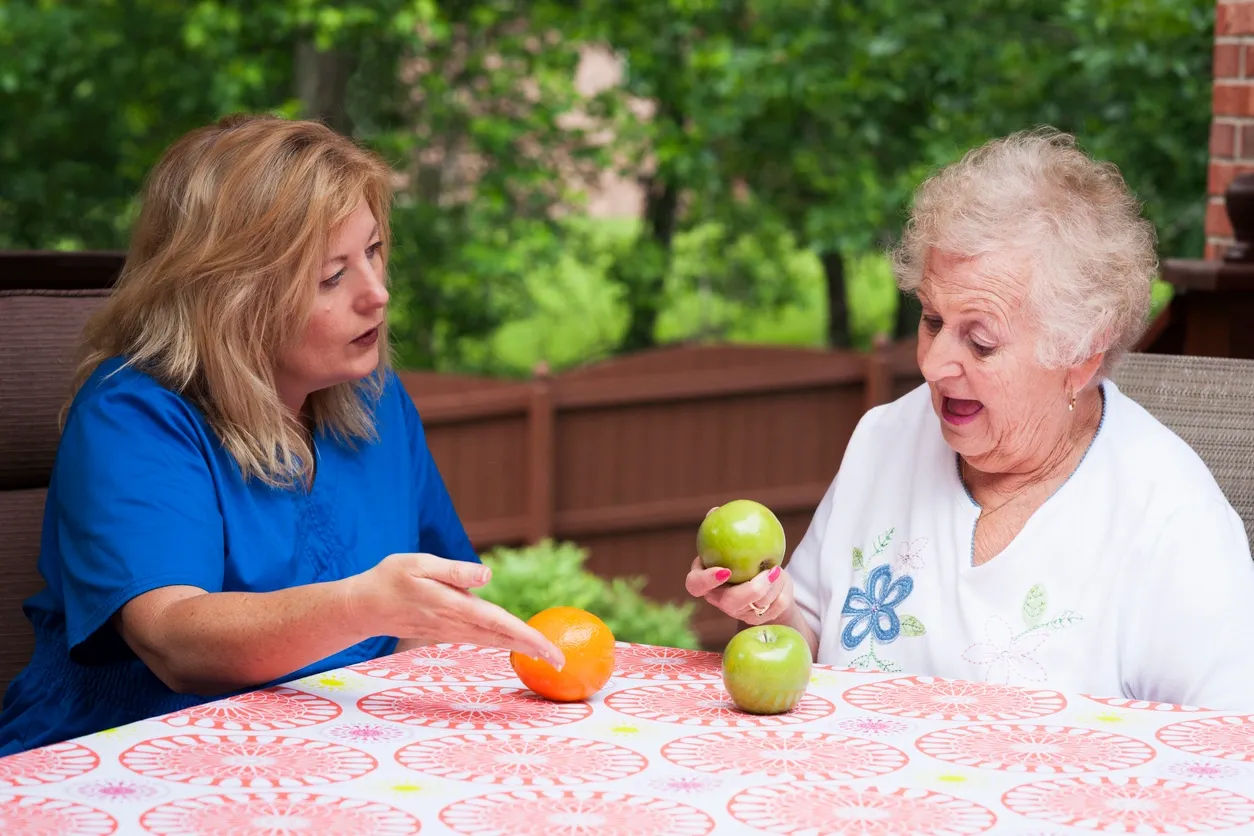
Caring for Seniors: Diet and Nutrition
January 22nd, 2021Caregiver Service, Elderly Care, In Home Care, in home care assistance, Long Term Care, Uncategorized,
Caring for Seniors: Diet and Nutrition
Eating a healthy and nutritious diet is essential for seniors as they age. The human metabolism changes as people grow older. Seniors don’t need to eat as much as they did when they were younger. This makes what they do choose to eat all the more important. Here are some tips to keep in mind about diet for seniors and nutrition.
Put Colors on the Plate
One way to make sure older people eat healthily is to encourage colorful eating. A healthy plate includes foods from different food groups including:
– Whole grains like whole-wheat pasta and brown rice
– Lean proteins like eggs, lean meats, beans, and seafood
– Fruits and vegetables that are green, red, orange, and purple
– Low-fat dairy such as milk, almond milk, and cheese
Know What’s in Your Food
Labels matter when it comes to a good diet. The healthiest ones are foods like produce, dairy, and meat because they are whole and not processed. This is why reading labels matters. Hidden things such as added sugar, higher fat, and sodium lurk in processed foods and can derail the most well-intentioned efforts to eat well.
How to Get Healthy Food For Seniors
Knowing what is in food and the types of food to eat are only one part of proper nutrition. The truth is that many seniors struggle with accessing food due to a lack of ability to get out and shop. But there are several ways to make sure seniors have access to nutritious foods. These include:
Stocking up on healthy foods:
– Boxed, shelf-stable soups
* Almonds and cashews
* Fresh salads
* Dried fruits
* Baby Carrots
* Sliced chicken
* Fresh string beans
Arranging for prepared meals from services like Mom’s Meals or meal kit services like Hello Fresh to deliver ingredients to make meals.
Set up grocery deliveries from services like Instacart, Amazon Fresh, or Shipt. These services can be scheduled days in advance or delivered the same day. Instacart and Shipt offer multiple stores on their platform including Safeway, Target, and CVS.
If you’re worried about your loved one’s diet and nutrition. Reach out to Polish Care Services about setting up long term care services that include meal preparation. Reach out to us today.
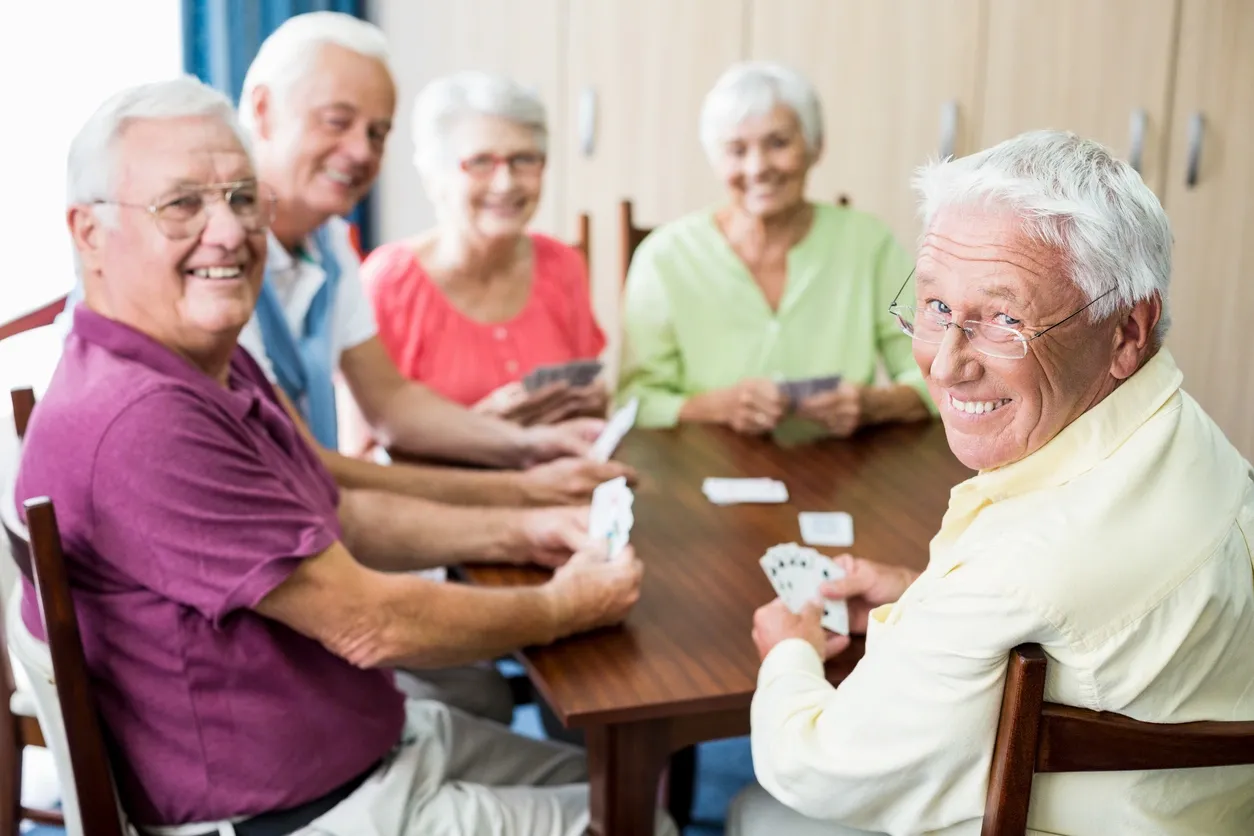
Caring for Seniors: Card and Puzzle Games Benefits for Seniors
October 27th, 2020aging in place, Caregiver Employment, Caregiver Service, Elderly Care, In Home Care, in home care assistance, Long Term Care, Meditation, Polish Care Services, Senior Care Services,
Exercising your mind is just as important as exercising your body. This is especially true as people get older. One way to keep the mind active while having fun is to play board, card and puzzle games. Here’s how such games help the mind stay sharp and entertained simultaneously in long term care.
Come Together
Card and puzzle games are activities that bring people together. Being able to play a game with a friend or family member brings a sense of purpose to the gathering and can help seniors feel less isolated and alone. They’re able to connect to other people, share stories with one another and build on relationships. Such games also have the impact of reducing anxieties about social situations.
Improving Brain Function
Studies show that seniors who participate in activities like playing cards and doing puzzles regularly can improve their brain function because it engages memory, reasoning, and mental speed.
Games to Play
Call to Mind is a card and board game that focuses on communication. It was developed for people in the early stages of dementia. Its purpose is to help seniors remember things from their past and strengthen those memories. It’s also one way to get to know other people.
Jigsaw puzzles utilize multiple parts of the brain which is why they are beneficial for people with Alzheimer’s and dementia. They require creativity and logic to solve and help to exercise short-term memory. Simple pictures with distinct shapes are recommended. Puzzles can even be made of pictures from a person’s favorite memories.
PicLink is a type of puzzle and card game. It uses tiles with photos on them to help encourage conversation and memory building for people who have dementia. It’s a simple game so it may be too simple for some seniors. But it’s one of the very few options out there for people who can’t do complex tasks.
Shake Loose a Memory is a type of card game. Players keep cards if they have a memory listed on the card like gardening. Then it asks a specific question about that subject. It encourages players to share memories and stories they haven’t thought about for a while. The game encourages seniors with Alzheimer’s or dementia to communicate more.
If you’re searching for in home senior care for a loved one with Alzheimer’s or dementia, reach out to Polish Care Services. Our dedicated care team will match you with a caregiver to meet your needs.

Caring for Seniors: Providing Care for Seniors During COVID-19
August 25th, 2020Caregiver Employment, Caregiver Service, Companion Caregiver, Companion Senior Care, Homecare, House Cleaning, In Home Care, in home care assistance, Long Term Care, Office Cleaning,
COVID-19 is not going away any time soon. There are measures that caregivers can and should
take to protect themselves and the people they care for. This article discusses how these measures
protect everyone involved and keeps those in need of care from contracting COVID-19.
Understanding COVID-19 Spread
COVID-19 spreads between people in proximity to one another, less than six-feet apart via
respiratory droplets. When one person coughs, sneezes, or talks to another, the droplets produced
from that will land in the other person’s mouth and nose. The virus can spread from someone who
is infected but not showing symptoms.
How to Stay Safe
Hand washing is one of the main ways to help keep caregivers and those who need care safe. It
should be done frequently, especially after:
– Using the bathroom.
– Caring for someone who is sick.
– Leaving a public place.
– Blowing your nose.
– Changing a diaper.
– Touching your face, eyes, or mouth.
Use hand sanitizer with at least 60% alcohol if soap and water aren’t available.
Maintaining distance from others is another way to stay safe. Stay away from people who are sick
in your household. If you provide long term care at a facility or at a person’s home, limit
unnecessary close contact as much as possible.
Wear a mask when you are outside the house. A mask protects others from getting sick. This
includes while you are working with your care client. Gloves are also recommended when working
closely with someone else.
Keep disposable supplies like masks, gloves, hand sanitizer and other things specific to your care
client in a container at their home or at your facility for your use only.
Clean Frequently
Clean and disinfect surfaces frequently while you are working. This is also a good practice to
implement at home.
Stay Healthy
Be aware of the basic symptoms of COVID-19. These include fever, cough, and shortness of
breath. If you think you have any of these, take your temperature. Don’t take it right after
exercising or taking medication. Consider keeping a symptom diary to track any time you are
feeling unwell during the pandemic.
If you experience any of these symptoms or others, let your client know and plan for alternative
care, and get a COVID-19 test if symptoms are not going away.
Caregivers at Polish Care Services are committed to keeping clients safe during COVID-19.
Moreover, one caregiver to one patient in an in home care setting helps to minimize the risk of spread.
Contact us at 860-255-8278 to learn more about how we provide safe in home senior care.
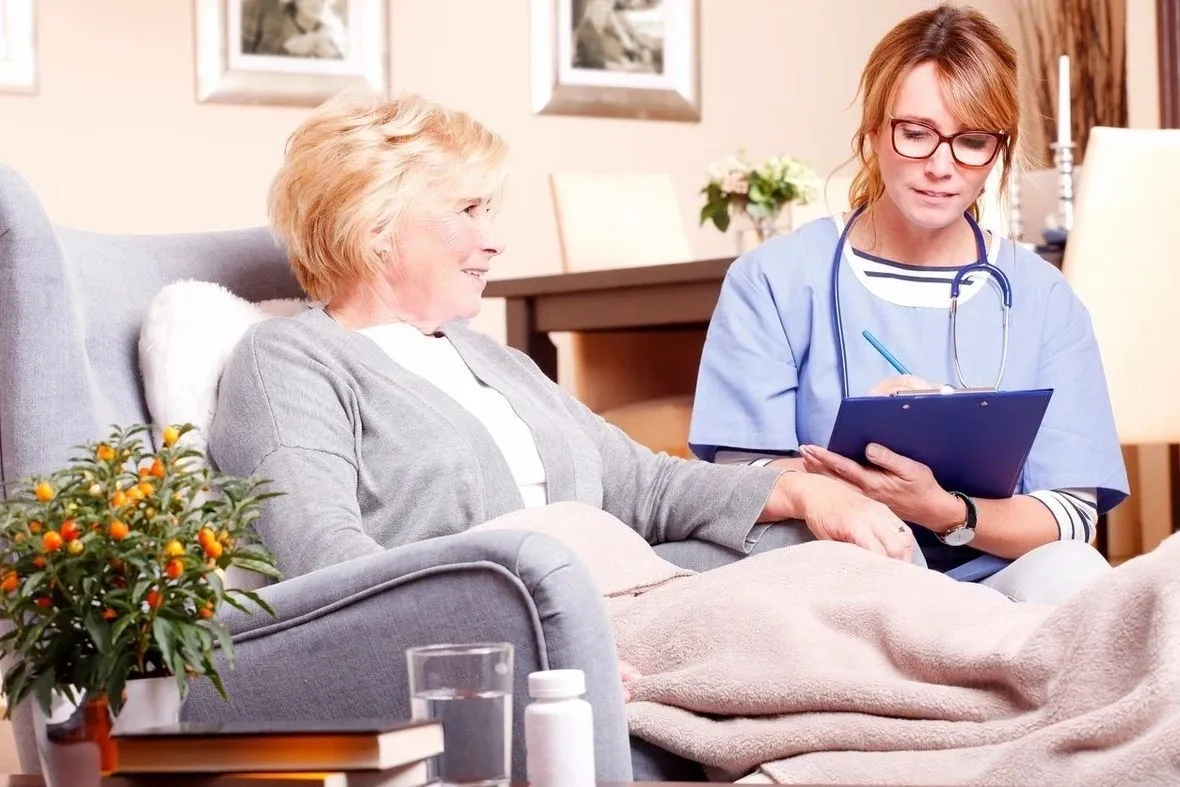
Caring for Seniors: Managing Finances
July 28th, 2020Caregiver Employment, Caregiver job, Caregiver Service, Companion Caregiver, Companion Senior Care, Disability Care, Hire CNA, In Home Care, in home care assistance, Long Term Care, Outdoor Activities for Seniors, Polish Care Services, Senior Living, Senior Services, Seniors, Spring Activities,
Caring for Seniors: Managing Finances
Care is an expensive part of getting older. Everyone will need some type of long term care in their senior years. This knowledge does not make planning for these financial eventualities any easier. Long-term care insurance is one option that helps with the cost of care as people age. This article provides an overview of what this insurance option is and what it covers.
What is Long-Term Care Insurance?
Long-term care insurance covers services that help seniors as they get older. It helps with the cost of having assistance for activities of daily living or ADLs such as bathing, dressing, and transferring. Traditional health insurance doesn’t cover such costs. This insurance can cover:
– In-Home Care
– Home Health Aides
– Care at an Assisted Living Facility
– Care in a Nursing Home
Long-term care insurance is an option that some seniors choose because they may not want to use a loan, property sale, or to depend on family to help out if care is needed.
The Benefits of Long-Term Care Insurance
Long-term care insurance can help pay for in-home senior care and seniors can stay at home longer. The insurance will typically begin covering services when assistance is needed with two or more ADLs. Because it covers in-home care, a senior can have caregivers come into their home and help them with ADLs along with things like cooking and cleaning.
The costs of moving to assisted living or to a nursing home has a monthly rate starting at $6,000 on average excluding the cost of medical care. If you are a senior in need of care, the cost is typically less expensive to stay at home with care.
What to Keep in Mind About Long-Term Care Insurance
The best time to buy long-term care insurance is between the ages of 50 and 65. Waiting longer may mean an increase in cost, especially for those with an existing condition. Insurance premiums are not cheap but for those who can’t afford care out-of-pocket and are not considered low-income, long-term care insurance is something to think carefully about.
If you’re in need of in-home senior care, reach out to the staff of Polish Care Services 860-255-8278 or care@polishcareservices.com. We can help walk you and your family through the options for in-home senior care.
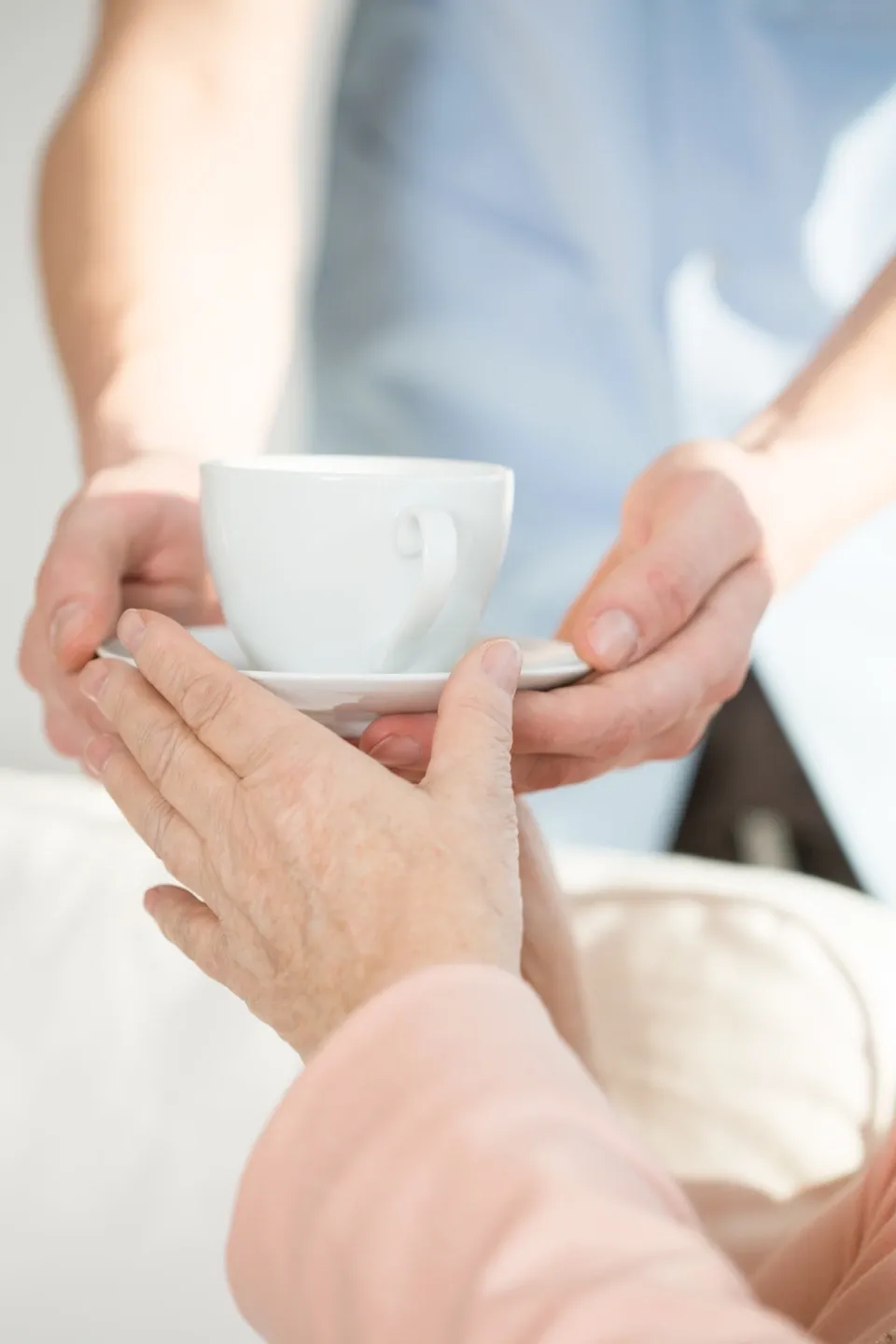
Caring for Seniors: The Caregiver Option
July 7th, 2020Caregiver Employment, Caregiver Service, Home Care, Home Healthcare, Homecare, House Cleaning, In Home Care, in home care assistance, Long Term Care, Polish Care Services, Senior Care Services,
If your elderly loved one is struggling with daily activities like shopping, bathing, or dressing independently, and wants to stay in their home, consider hiring a caregiver. This article discusses what a caregiver is, what their duties are, and tips for hiring one for your loved one.
What is a Caregiver?
A caregiver is someone who provides in-home care for someone who needs extra help doing daily tasks on an ongoing basis. They can also be employed when a loved one is recovering from a temporary illness or surgery.
What a Caregiver Does and Limits to Consider
A caregiver can help with things like driving to appointments, shopping, dressing, and bathing and serve as companions. Caregivers can also help seniors with any prescribed exercises given by therapists, attend appointments, and report any health concerns to family members or doctors that they observe. The duties of the caregiver will ultimately depend on the care needs of a loved one. But there are limits.
When hiring a caregiver, consider what the care needs of your loved one are realistically speaking. Senior care needs can change over time. So be prepared to consider other care options such as increasing hours, round-the-clock care, or moving to a facility if that is what is necessary and appropriate.
Things to Consider When Hiring a Caregiver
Considering your loved one’s care needs is important but it’s not the only thing you should factor in.
Finances- Insurance does not cover the cost of caregivers the majority of the time. Can your loved one or family afford to pay for caregivers now and increased needs in the future?
Family Agreement- Make sure that your loved one and family members involved with them and their care agree with the decision. If your loved one or other family members have different ideas about who the caregiver should be, it can cause significant conflict.
The Right Fit- Hiring a caregiver independently or going with the first agency you call may not be the right fit for your loved one. Talk with your loved one and family, ask questions of prospective agencies and do your research before you hire anyone.
If you’re not sure where to start in your caregiver search, contact Polish Care Services. Our staff will be happy to discuss our services with you!
